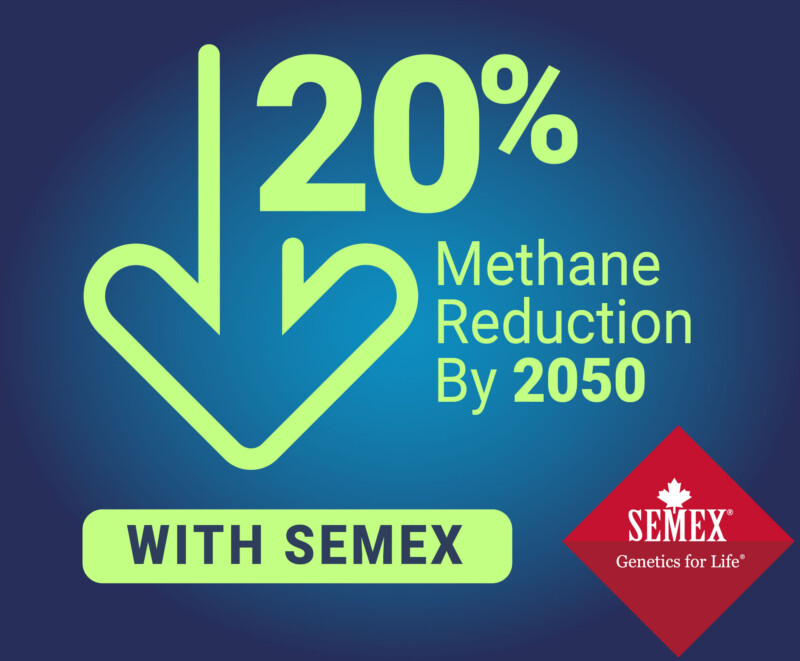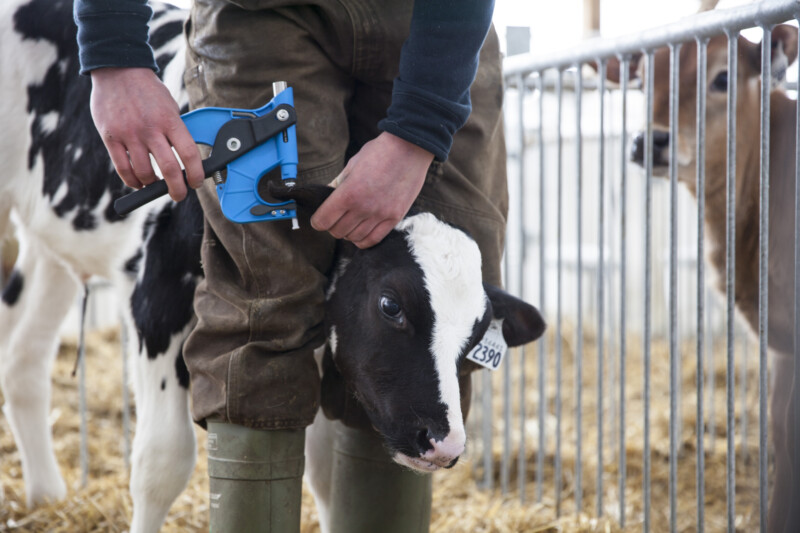Bles Dairies is distributor for Semex in the Netherlands, Belgium, Russia and Denmark. At Semex, health, sustainability and the global ‘Net Zero’ discussion is a high priority, as globally they are asked to reduce emissions by their consumers and local governments. Ten years ago, they started this conversation by changing the traditional trait discussions when they introduced Immunity+®. This technology genetically targeted breeding cows needing less antibiotics, that are healthier and last longer in herds. Now, they are excited to introduce a Methane Efficiency (ME) trait. Most significant, through genomics and the Elevate® testing program, they are focusing on both animal welfare and the environment.
Facts about Greenhouse Gas Emissions
Looking at the facts, 16% of total Greenhouse Gas (GHG) emissions are from methane. Thirty-two percent of this comes from cattle, 90% of which is from entric methane (the rumen). Of that, 24% of ruminant methane is from dairy, and as a percentage of man-made sources of methane, dairy makes up about 7%.
Importantly we know that 19-24% of entric cow emissions can be explained by genetics. This gives us a tremendous opportunity to make real change in GHG emissions through permanent, cumulative genetic selection.
New trait in April 2023: Methane Efficiency
In April, Lactanet will publish Methane Efficiency breeding values producers can use to significantly reduce their herds’ methane emissions. For genomic bulls, it is 70% reliable and through genetic selection over multiple generations, we can confidently say we can reduce ME/cow by 20% by 2050.
The role of Elevate (genomic testing)
Proving ME change is the key to making real change. At Semex, our Elevate program plays a significant role in this, helping track, trace and benchmark progress year over year. This makes conversations with bankers, processors, retailers and consumers about real change not only possible but easier. We can now face these discussions head on with real solutions and real change.
Semex’s global Elevate users will automatically receive a methane index on all genomic tested females in April, and we will publish an index on all Semex Holstein sires. This gives dairies a clear-cut genetic solution and lowering methane in their herds faster and easier.
“Without a doubt, genomics is here to stay, and it is where sustainability starts,” says Semex CEO Paul Larmer. “Genomics can provide us with so much more information than just basic traits like milk, fat and protein. Now, we’re able to identify health, methane emissions and reproductive evaluations. More importantly we’re able to benchmark these things within a herd along with their long- and short-term goals. Without a doubt Elevate is the key to moving the needle on sustainability and health. And, we know on farms globally, Sustainability Starts With Semex.”


